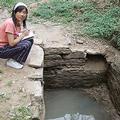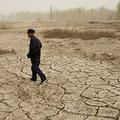 據中國官方媒體新華社報導,長江水利委員會主任蔡其華13日在年度工作會報中宣佈,當局在2011年之前,將持續在長江進行8項水資源保育及管理計畫,可望改善水資源利用及保護環境。
據中國官方媒體新華社報導,長江水利委員會主任蔡其華13日在年度工作會報中宣佈,當局在2011年之前,將持續在長江進行8項水資源保育及管理計畫,可望改善水資源利用及保護環境。
蔡其華指出,這些計畫並非全是新計畫有些其實已經在進行當中,未來工作項目包括強化中下游河堤、在主要的支流和湖泊建構防洪計畫、以及管控會危及人民生命的非主要河流及山域等。另外還含括防洪設施、水力發電廠與三座水壩。其中三峽大壩是世界最大的水力發電站,而另有第三個水壩正在興建中。其他還有多個計畫在不同的計畫階段。
在此同時,世界銀行12日提出一份《解決中國水資源短缺:從分析到行動》報告,當中指出,中國若要解決缺水危機,就必須進行全面性的改革。這份研究根據2006-2008年間的資料,指出中國缺水的現象是起因於工業化和人口增加,進而對水的需求提升,而水污染,更減少了可用的淨水。
根據政府優先事項,這份報告把焦點放在水資源治理、水權、水價與付費能力、水域生態補償機制、水污染控制,以及急難預防。
 報告裡建議,中國需要從傳統水資源管理及以政府為主要決策者的現況,轉為現代的管理方式,水資源管理應仰賴健全的法律框架、有效率的體制安排、透明的決策,和訊息公開,以及人民積極參與。
報告裡建議,中國需要從傳統水資源管理及以政府為主要決策者的現況,轉為現代的管理方式,水資源管理應仰賴健全的法律框架、有效率的體制安排、透明的決策,和訊息公開,以及人民積極參與。
世界銀行中國分部主席杜大偉(David Dollar)表示:「毋庸置疑的,中國正面臨的重大挑戰,即是:如何在未來幾年缺水的情況下,管理水資源以供應經濟成長。」
Eight water conservation and control projects along China's longest river, the Yangtze, will be underway by 2011 to improve water use and protect the environment, a water conservation official said Tuesday.
Cai Qihua, director of the Yangtze Water Resources Commission, announced the projects during the commission's annual work meeting in Wuhan, the official state news agency Xinhua reports.
Not all of the conservation projects are new, some are already in progress, Cai said. They include strengthening embankments on the middle and lower reaches of the river, building flood control projects at major tributaries and lakes, and "controlling minor rivers and mountain torrents that pose threats to life."
Other planned projects include reservoir and flood-control facilities and hydropower plants. One of the two dams on the river, the Three Gorges Dam, is the largest hydroelectric power station in the world. A third dam is under construction and half a dozen more are in various stages of planning.
A World Bank report published Monday says China needs to carry out widespread reforms to tackle the crisis.
The study says water shortages have been created in part by increased demand for water due to industrialization and population growth, as well as by pollution reducing the amount of available clean water.
The report, "Addressing China's Water Scarcity: From Analysis to Action," is based on studies bank personnel carried out from 2006 through 2008.
Based on government priorities, the report focuses on water governance, water rights, water pricing and affordability, watershed ecological compensation mechanisms, water pollution control, and emergency prevention.
The report recommends that China needs to move from a traditional water management system with the government as the main decision-maker towards a modern approach to water governance that relies on a sound legal framework, effective institutional arrangements, transparent decision making and information disclosure, and active public participation.
"There is no doubt that China is facing a major challenge in managing its scarce water resources to sustain economic growth in the years ahead," said David Dollar, World Bank country director for China.


